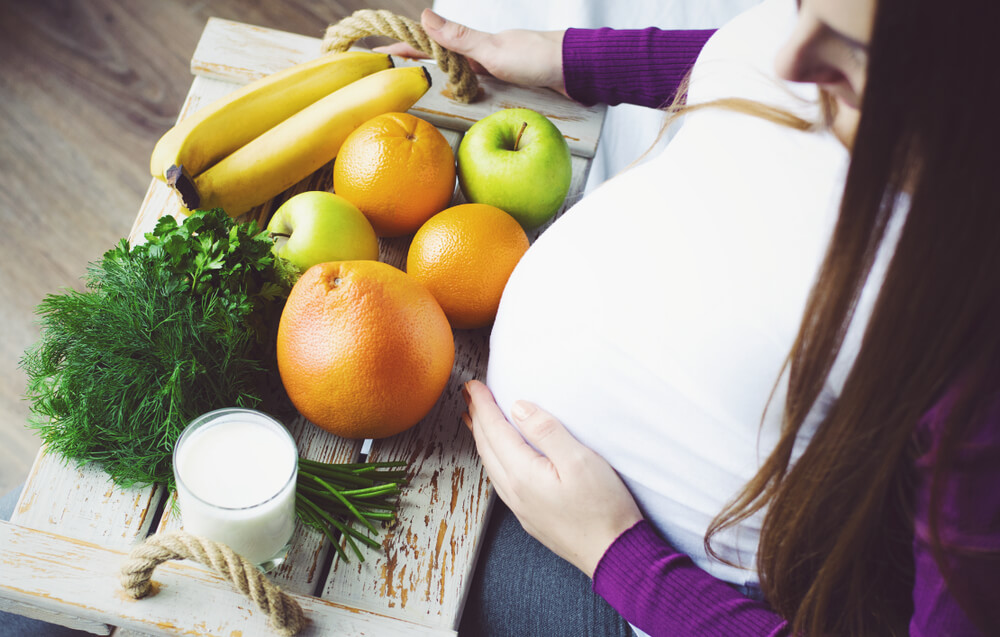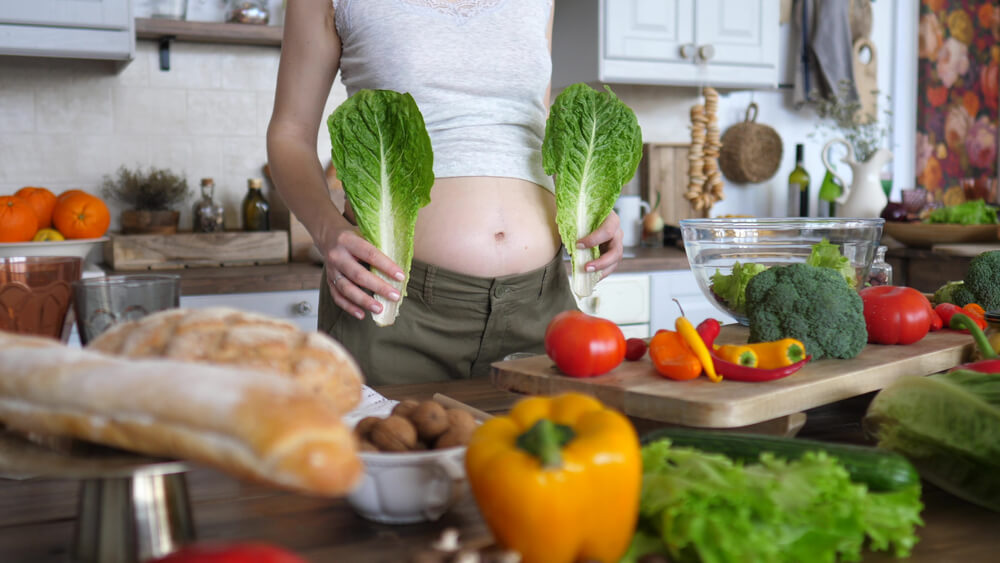Clean eating during pregnancy is crucial for maintaining the health of both the mother and the child. It’s essential to research and find out what you should eat during pregnancy. On the other hand, you must also learn about all the foods you must avoid as this is equally important. Read on to find out more about things like which fruit is good for pregnancy and what you must avoid as you carry your child.
Prepare Food Safely
Eating healthy is not only about the content of your diet during pregnancy, but it also involves how the food is prepared. Below are some helpful tips for preparing the food you eat when you are pregnant:
- Wash your fruits and vegetables to ensure there are no traces of soil left. Soil sometimes contains toxoplasma, a harmful parasite that is a threat to the unborn baby.
- Wash hands, utensils, and surfaces after handling raw meat. Several infectious agents can be found on raw meat, including toxoplasma, salmonella, and listeria.
- Raw foods and ready-to-eat food must be stored separately to avoid food poisoning.
- Use two different cutting boards when preparing ready-to-eat foods and raw meat.
- Heat food until it’s piping hot, especially poultry products.
- Make sure that foods like sausages and eggs are cooked properly.
You should pay a lot of attention to clean eating during pregnancy. There are a lot of infectious agents on certain foods that can be a danger to the baby.
Figure Out the Amount of Calories You Need

Pregnant women have different calorific requirements when compared to those who are not. As such, it’s important that you take the time to figure out the number of calories that must be in your meals for pregnant women. However, being pregnant doesn’t necessarily mean that you must eat twice the food you were eating before. Here is a general breakdown of the calorific requirements for diet during pregnancy:
- First trimester (first 12 weeks) – the majority of women won’t need additional calories.
- Second trimester (13 to 26 weeks) – you will need approximately 340 extra calories daily.
- Last trimester (after 26 weeks) – you should consume about 450 extra calories daily.
It’s important to keep in mind that there are several other factors that might affect the number of calories you need during pregnancy. As such, the best way to go about things would be to ask the doctor about calories and meals for pregnant women. You can also ask the doctor things like which fruit is good for pregnancy. That way, it will be easier for you to come up with a custom pregnancy food plan.
Choose Healthy Snacks
Being pregnant doesn’t mean you can’t snack anymore. However, your choice of snacks definitely has to change. You don’t want to end up consuming too much sugar and fat. For instance, it’s advisable to stay away from things like biscuits, sweets, and chocolate. Instead, when you get hungry between pregnancy meals, you can choose a healthy snack. You should also figure out which fruit is good for pregnancy. Here are some healthy and nutritious snacks:
- Fresh fruit
- Figs, apricots, and prunes
- Carrots, cucumbers, and celery
- Vegetable sticks
- Low-fat yogurt
- Bean and vegetable soups
- Fruit juices(unsweetened)
- Unsweetened porridge
Healthy snacks can greatly enhance your diet during pregnancy. The good thing is they won’t affect your calorie goals.
Make Sure Every Meal is Complete with Protein, Healthy Fat, and Fiber
It’s important to ensure that your pregnancy meals make you feel satisfied long after you are done eating. You can easily achieve this with a combination of fiber, healthy fat, and protein. Apart from that, you will get all the nutrients required to ensure the baby grows well. Here are some examples of meals that are packed with the right nutrients:
- Berries mixed with almond butter and full-fat Greek yogurt
- An avocado, greens, and heated chicken salad
- Brown rice, salmon, veggies. The meal should be cooked with olive oil.
You can also come up with your own meals of healthy foods that pack good amounts of protein, fats, and fiber.
Pay Attention to Ingredient Labels
It might seem obvious that it’s important to read labels, but most people don’t go through the ingredient lineup. It’s advisable to take extra caution with your pregnancy meals and ensure that you know what’s in the food you take. You will want to pay particular attention to the sugar content of what you eat. Sugar often hides in places where you’ll never suspect. For instance, you might not think to check out the sugar content of salad dressing and yogurt. Also, keep in mind that sugar can be listed under different names. Some people will label it cane juice, corn syrup, or agave.
Foods to Avoid During Pregnancy
It’s equally important to figure out the things that must never be part of your meals for pregnant women. Fortunately, you have more things you can eat than those you can’t. So, for you to have a clean pregnancy, here are some of the things that you must avoid.
All Alcoholic Drinks
It’s advisable to avoid alcohol altogether when you are pregnant. This is because the consumption of alcohol during pregnancy is linked to a high risk of miscarriage and stillbirths. Unfortunately, even small amounts of alcohol can have this effect. It has also been shown that alcohol can negatively affect the brain of the baby.
Alcohol consumption during pregnancy is associated with fetal alcohol syndrome. This is a condition that causes heart defects, facial deformities, and intellectual disabilities. Currently, there are no safe levels of alcohol that have been determined for pregnancy. As such, it’s advisable to avoid taking it altogether.
Fish With a High Mercury Content

Mercury can be highly toxic, especially when you are pregnant. Unfortunately, there is no known safe level of exposure when it comes to this compound. When consumed in excess, mercury damages the immune system, nervous system, and kidneys. It can also result in some serious developmental issues in children. Research shows that when you are pregnant, even small amounts of mercury may lead to adverse effects.
Mercury is mainly found in polluted waters. This means large marine fish can end up with high levels of mercury. It is, therefore, best to entirely avoid high mercury fish when you are pregnant. Additionally, breastfeeding women are also advised to stay away from fish containing large amounts of mercury. High mercury fish include king mackerel, tuna, swordfish, and shark.
Caffeine Containing Products
It is advisable to stay away from caffeine during pregnancy. If you are a fan of caffeine, then this will definitely not be a piece of good news for you. However, if you still want to take some, you shouldn’t exceed 200 milligrams daily. This substance is absorbed at a fast pace and can easily cross the placenta into the baby’s circulatory system. Unfortunately, babies lack the enzymes needed to break down caffeine. As a result, the substance might end up accumulating in their bodies.
Taking excessive amounts of caffeine during pregnancy is linked to low birth weight. The substance is thought to restrict fetal growth. Unfortunately, low birth weights are also associated with higher rates of infant death. Apart from that, they are also linked to a higher risk of chronic diseases later in life.
What do you think about our tips for healthy and clean eating during pregnancy? Are there any other foods you aren’t sure you should be eating during pregnancy? It’s crucial to ensure that you only eat foods that will promote your health and the health of the baby. You must always keep in mind that whenever you eat during pregnancy, you will be eating for two. Still, at the same time, you should also remember that the baby doesn’t need as much food as you. If you are trying to figure out a pregnancy diet plan but you aren’t sure what to include, contact us today to arrange a consultation. Our experts have many years of experience helping pregnant women with their diet plans.


